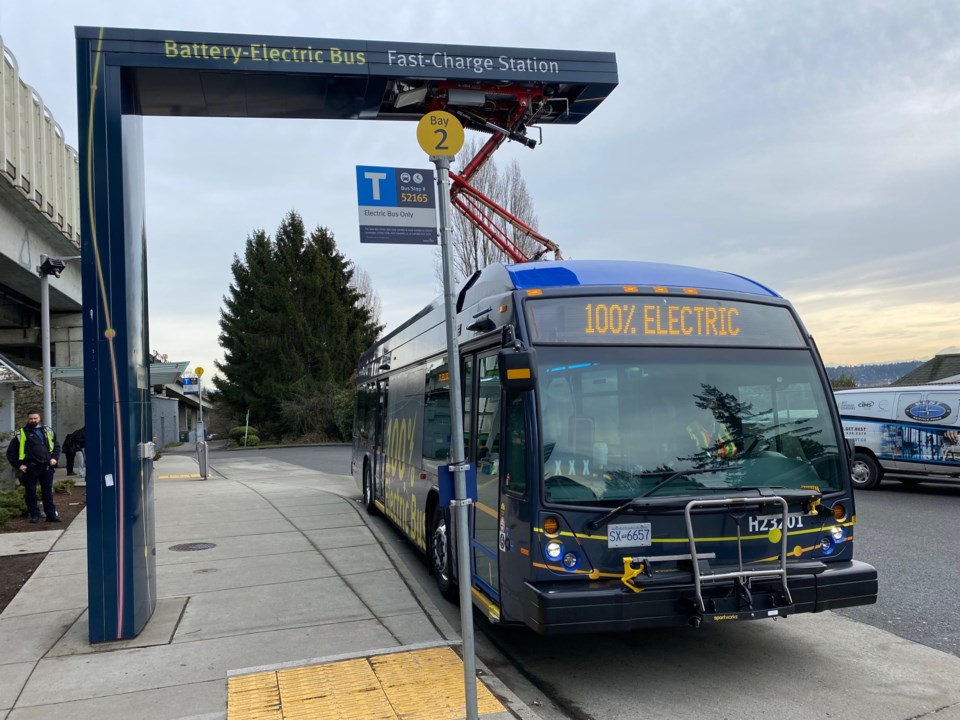It’s going to take a longer time for Lower Mainland commuters to see an all-electric bus fleet throughout the region.
That’s because TransLink says there's a delay by Lower Mainland municipalities in permitting electric bus charging infrastructure. This has forced TransLink's hand in purchasing natural gas buses, instead of electric ones better suited to meet the transportation authority’s all-zero emission vehicle fleet target by the year 2040.
TransLink CEO Kevin Quinn went cap in hand to Metro Vancouver’s board of directors last Friday, requesting $75 million in funding from the federal gas tax, which the board administers, to purchase 84 conventional renewable natural gas buses to replace the aging diesel fleet due to be scuttled in 2024.
Some board directors, including Vancouver councillor Adriane Carr and Burnaby Mayor Mike Hurley, expressed concerns the natural gas buses would set back TransLink’s zero-carbon targets.
But, TransLink has noted the renewable natural gas bus purchases are still part of the 2040 zero-emission fleet goal, as they will be retired before then.
Although battery electric buses are available, it is because of the charging infrastructure delays that TransLink had to make a decision: wait it out for the charging stations or go with a middle-of-the road approach in buying less carbon-intensive natural gas buses.
TransLink explained in a Jan. 26 letter to Metro Vancouver that charging infrastructure requires a considerable capital investment and four to eight years to plan, design and construct.
The board voted in favour of the natural gas bus application, with Carr opposed, citing moral grounds, and not necessarily practical ones.
Eventually, TransLink aims to fully electrify the Marpole transit centre for 350 battery buses and the Port Coquitlam transit centre, in part, for 136 battery buses.
Nevertheless, stated TransLink, taking the diesel buses off the road will reduce TransLink’s “enterprise annual GHG emissions” by approximately 17 per cent by 2024, with six per cent of this coming from the 84 buses proposed under TransLink’s application.
TransLink is already using $400 million of the gas tax funds to replace 188 electric trolley buses.
Editor's note: This article has been edited to make clear TransLink’s climate action plan incorporates renewable natural gas buses.



